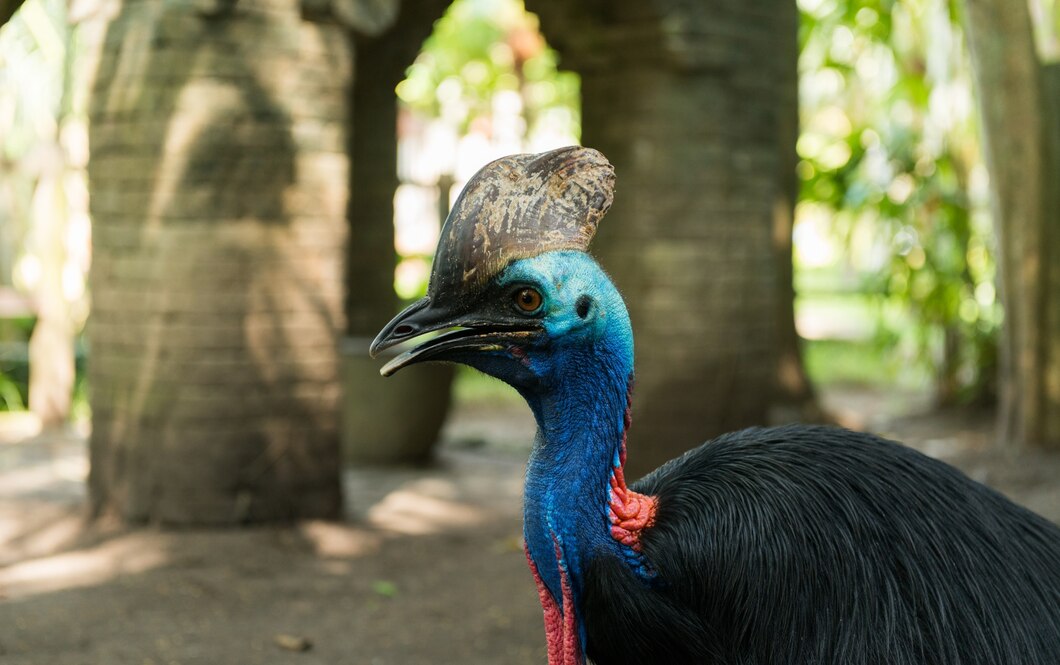Ever heard of guinea fowl? These quirky, noisy, and utterly charming birds are quickly gaining popularity among backyard farmers and bird enthusiasts alike. Whether it’s their unique appearance, pest-controlling abilities, or delectable meat and eggs, guinea fowl have plenty to offer.
In this guide, we’ll uncover everything you need to know about these feathered gems—from their history and care to their surprising benefits. By the end, you’ll see why these birds deserve a spot in your flock—or at least your curiosity!
Guinea fowl are medium-sized birds native to Africa. They’re known for their speckled feathers, unique helmet-like head structures, and distinctive calls. These birds belong to the Numididae family and are closely related to pheasants and turkeys.
There are several types of guinea fowl, but the most common species is the helmeted guinea fowl (Numida meleagris). They’re hardy, low-maintenance, and bring plenty of personality to farms and backyards worldwide.
Did you know guinea fowl have been around for thousands of years? Ancient Egyptians domesticated them as far back as 2400 BC. They eventually made their way to Europe and the Americas through trade routes, earning a reputation as both exotic and practical birds. Today, they’re prized for their ecological benefits and versatility.
Thinking of raising guinea fowl? Here are some reasons why they’re a great choice:
Guinea fowl are voracious eaters of ticks, grasshoppers, and other pests. They can significantly reduce tick populations, which helps prevent diseases like Lyme disease in both humans and pets.
Unlike chickens, guinea fowl are highly independent. They forage for much of their food, don’t require elaborate housing, and are hardy against diseases.
Guinea fowl eggs are smaller than chicken eggs but rich in flavor and nutrients. Their meat, often compared to game birds, is lean, tender, and packed with protein.
Guinea fowl are natural alarm systems. Their loud, distinctive calls can alert you to intruders or predators.
Guinea fowl are an excellent choice for eco-conscious farmers. Their foraging reduces the need for chemical pesticides, and they can thrive in various climates without intensive resources.
While guinea fowl are low-maintenance, they still need some basic care to thrive. Here’s what you should know:
Guinea fowl need a secure coop to protect them from predators at night. Unlike chickens, they prefer to roost high off the ground, so include perches in their housing.
Though they forage for much of their food, provide a balanced diet of grains, seeds, and greens. Supplement their diet with protein-rich treats like mealworms during breeding or molting seasons.
Guinea fowl love to roam. If you have space, let them free-range during the day. For confined spaces, ensure each bird has at least 2-3 square feet in their coop.
Guinea fowl are hardy, but they can still face issues like mites or respiratory infections. Keep their living area clean and provide fresh water daily.
Guinea fowl have some unique quirks that make them stand out from other birds:
- Loud and Vocal: These birds are noisy, especially when startled. It’s part of their charm—but also why they’re great watchbirds.
- Social Creatures: Guinea fowl thrive in groups. A flock of 6-10 birds is ideal.
- Independent Streak: Unlike chickens, guinea fowl are fiercely independent. Don’t be surprised if they roost in trees or refuse to come inside on rainy days.
Guinea fowl eggs are small but mighty. Their thick shells and rich yolks make them a favorite among chefs and bakers. Here’s why you should try them:
- Rich Flavor: The taste is similar to chicken eggs but slightly richer.
- Nutritional Value: High in protein and low in cholesterol.
- Durability: Thanks to their tough shells, guinea fowl eggs have a longer shelf life than chicken eggs.
Good news! Guinea fowl are generally compatible with chickens, ducks, and other farm animals. However, keep an eye on their interactions, especially during feeding times—they can be a bit territorial.
While guinea fowl are fantastic, they’re not without challenges:
- Noise Levels: Their loud calls might not be ideal if you have close neighbors.
- Flighty Nature: Guinea fowl can fly and may wander off if not trained to return to their coop.
- Independent Mindset: Training them to follow routines, like coming inside at night, requires patience.
Guinea fowl can make great pets if you appreciate their unique quirks. They’re entertaining and useful but less affectionate than chickens.
Yes! Guinea fowl are known to chase away or even kill small snakes, making them great for pest control.
With proper care, guinea fowl can live 8-10 years.
Yes, guinea fowl and chickens can coexist peacefully, but monitor their interactions to prevent territorial disputes.
Not at all. Their foraging habits make them cost-effective, though you may spend on initial housing and occasional feed supplements.
With training, guinea fowl can be taught to return to their coop at night. Start early and be consistent.
Guinea fowl are more than just birds—they’re pest controllers, watchdogs, and delightful farm companions. Whether you’re looking to enhance your backyard’s biodiversity or simply want an eco-friendly pest solution, guinea fowl are worth considering.
